
Clarksfield details
The new flagship laptop chip is the Core i7-920XM, which has a base clock speed of 2.0GHz, but turbos up to 3.2GHz depending on the workload. It features 8MB of L3 cache in addition to the 256KB of L2 per core and has a TDP of 55W. It'll cost $1,054 per chip in 1,000 unit quantities.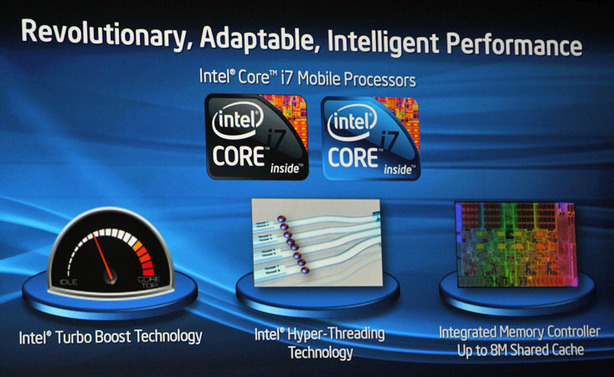
Below that, there's the Core i7-820QM and the Core i7-720QM. These run at respective base clock speeds of 1.73GHz and 1.60GHz and turbo to up to 3.06GHz and 2.80GHz respectively. The Core i7-820QM features the same 8MB L3 cache as the i7-920XM, while the i7-720QM's L3 cache has had 2MB lopped off it. Both chips have a 45W TDP, so they're not going to make their way into super-slim notebooks for quite some time, but the designs we've seen so far don't look too bad.
All three chips have Hyper Threading enabled and there will be designs coming from the usual suspects, such as Asus, Dell, HP and Toshiba, who Intel says have shipping products today.
"With intelligent features like Intel Turbo Boost Technology, Intel Hyper-Threading Technology and a host of others, Intel has revolutionised the laptop PC processor, delivering performance when you need it, energy efficiency when you don’t," said Perlmutter. "For the first time, mobile users can choose a laptop that delivers Internet-server like speed, right in their laps for the most demanding tasks, from intense gaming to digital video editing and social media applications."
Probably the most interesting part of Clarksfield was reserved for slightly later in the keynote though, as the way the new Core i7 Mobile chips handle power management in lightly threaded applications is particularly impressive and it really does contribute to the awesome Turbo Boost speed ups. Eden explained that when a core isn't being used, it is disconnected from the power bus, meaning that the idle core effectively consumes no power.
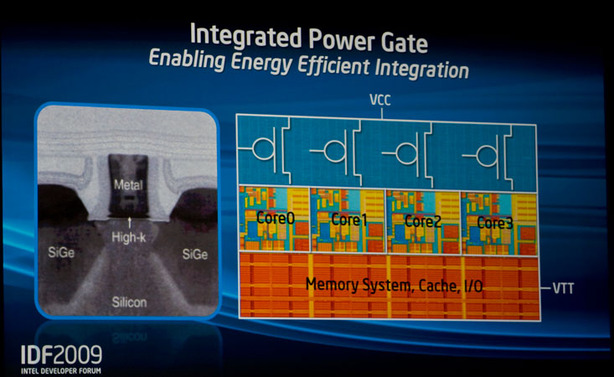
That power can now be used to boost the frequencies on the remaining cores to improve performance. The reason the improvements are much more significant appears to relate to the thermal design power. For example, we were told that the next-generation six-core Gulftown processor will have a similar Turbo Boost improvement to current LGA1366 Core i7 desktop chips and not Lynnfield. That's because Gulftown will be a 130W chip and so the wiggle room isn't quite as high as on lower-TDP chips.
We're working to get on exactly why there's such a discrepancy on how far each chip can Turbo Boost, but we believe it's related to the leakage, which increases logarithmically as TDP increases.

MSI MPG Velox 100R Chassis Review
October 14 2021 | 15:04

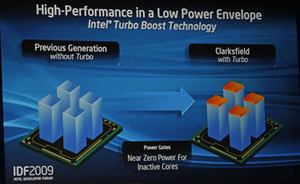
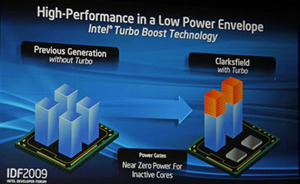
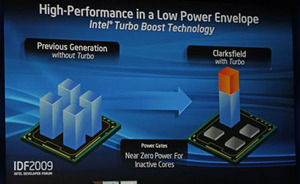








Want to comment? Please log in.